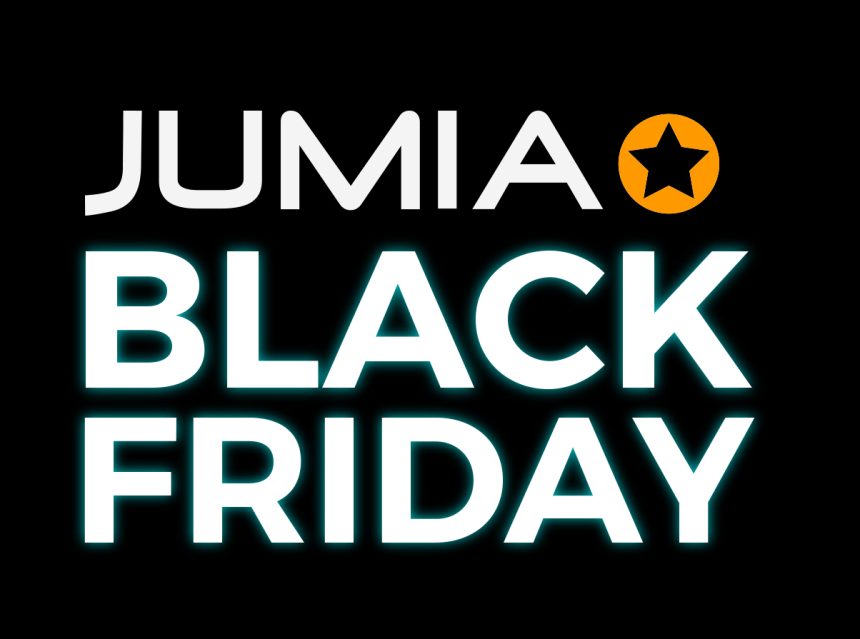Jumia, the Rocket Internet backed e-commerce platform which launched in Ghana sometime in 2013, has to a large extent, enjoyed tremendous success in Ghana’s e-commerce space. They came into the market at a time where e-commerce was relatively new and was gradually introduced to the Ghanaian populace.
They started off with Jumia.com.gh, which is a primary e-commerce platform for everything retail. They eventually went on to launch Jumia Market (which eventually left Ghana), Jumia house, Jumia Cars, Jumia Food and Jumia travel; brands which have also enjoyed a certain amount of reach and success over the years.
But really, how well has each of these platforms done?
Jumia.com.gh
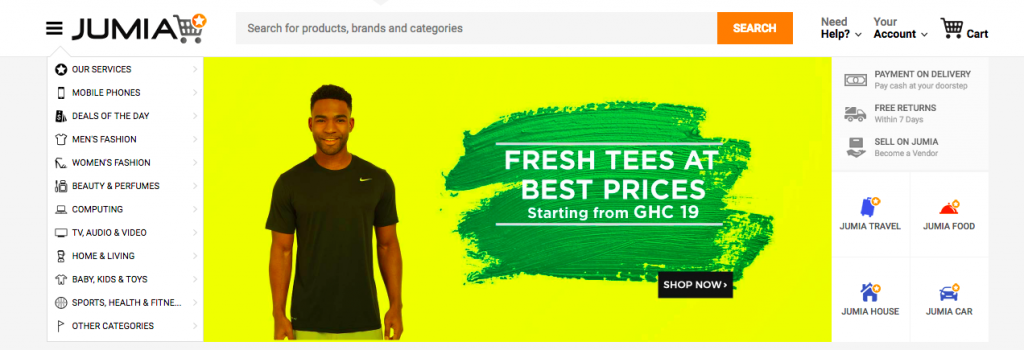
Probably Ghana’s largest e-commerce store, Jumia came into the market to fill a clearly evident gap. Launching at about the same time as their competitor, Tonaton.com, Jumia has maintained its brand’s footprints, by retailing authentic products, offering retailers variety, pioneering a delivery service and consistently evolving the way e-commerce is approached in Ghana.
With a website that enjoys about 70,000 unique visitors daily, making them 5th most viewed local content site in Ghana, Jumia.com.gh has definitely proved to be a leader in Ghana’s E-commerce space. With the emergence of other players, automatically shrinking their market size, it would be nice to see how they continue to evolve, adapt to new technologies in terms of Ghana’s fintech space and generally stay ahead of the competition.
In this era of open data, it would also be interesting to get exact figures of transactions and unique buyers as at October 2017.
Rating – 7/10
Jumia Food (Formerly, Hellofood)
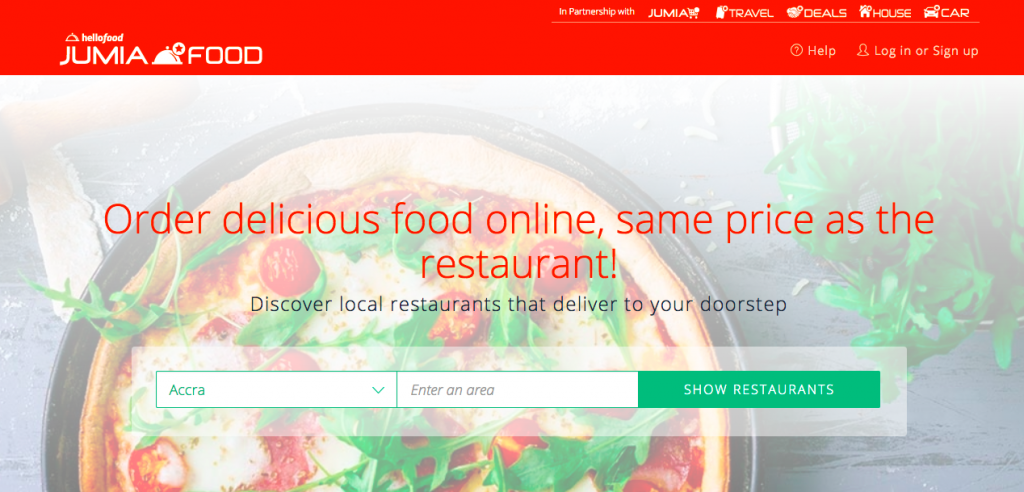
Also launching at a time where if you needed to buy lunch at Papaye, you’d have to wade through that Liberation Road traffic all the way to Osu. They brought a convenience that Ghanaians yearned for – the ability to aggregate all your favourite food spots in one app, order and have it delivered, for a fee of course.
I would think that Jumia food has been successful in its field since its launch. They’ve managed to aggregate a variety of restaurants in the city onto their app which is quite commendable.
Ghanaians have come to embrace their unique offering and working-class millennials in Accra have made this their go-to lunch service. There also hasn’t been any visible competition.
It’ll also be nice to get back-end numbers on unique users and transactions.
Rating – 7/10
Jumia Travel
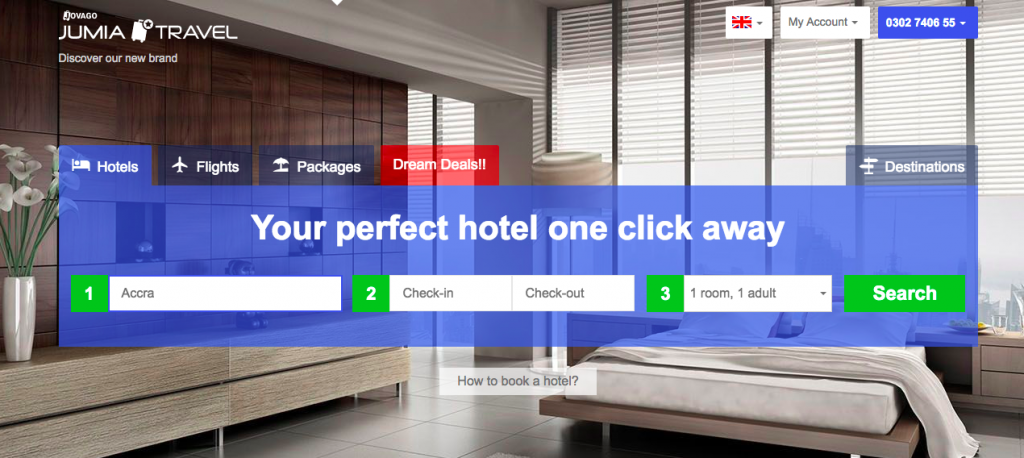
Jumia travel, the hospitality offshoot of the Jumia conglomerate wasn’t a unique service when launched. The likes of TripAdvisor, booking.com had already owned the hospitality market in Ghana, especially for first-time tourists.
But Jumia Travel came with a unique approach. They featured hotels that the TripAdvisor’s would not feature, primarily due to the level of access they had in Ghana. They went into the coldest parts of town and got even the 100GHS hotels on board for low budget travellers. They’ve gone on to launch hospitality reports for Ghana over the past two years, which have helped players in the hospitality industry better understand the market.
While they seem to be afloat, they could be doing a lot better.
Rating – 6/10
Jumia House/Jumia Car
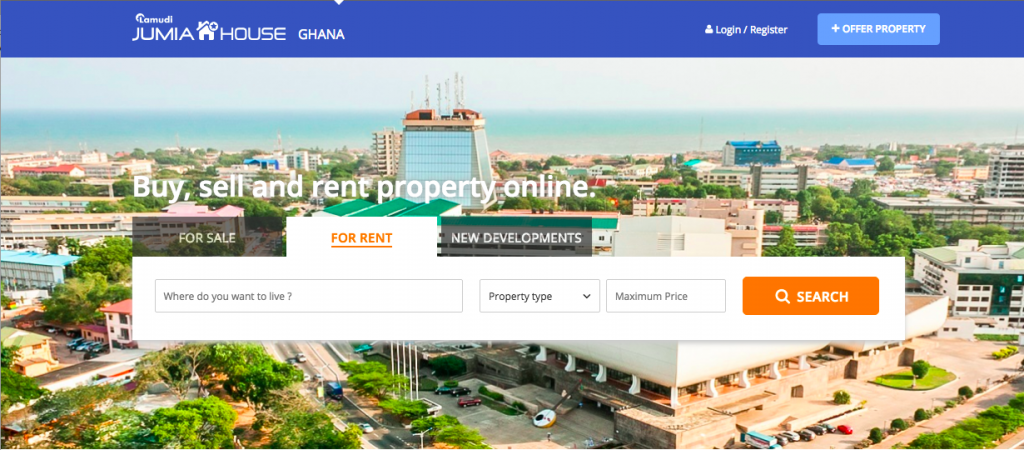
This is probably the least performing of all AIG backed network of Jumia companies. Both platforms seem to have found it a tedious task, settling in Ghana and scaling.
It also didn’t help that rival companies – Tonaton.com, meQasa.com etc – launched with unique offerings and more customer-focused platforms. They’ve managed to shrink the market cap of these two Jumia offsets. Or maybe the Ghanaian market isn’t ready to purchase a house or car online?
Perhaps.
Rating – 5/10
Averagely, the Jumia brand has fared well in Ghana. Most of their offerings have been widely accepted, a few have been sceptically approached, but in all, the brand has not only led the E-commerce revolution in Ghana but has been innovative about it.



